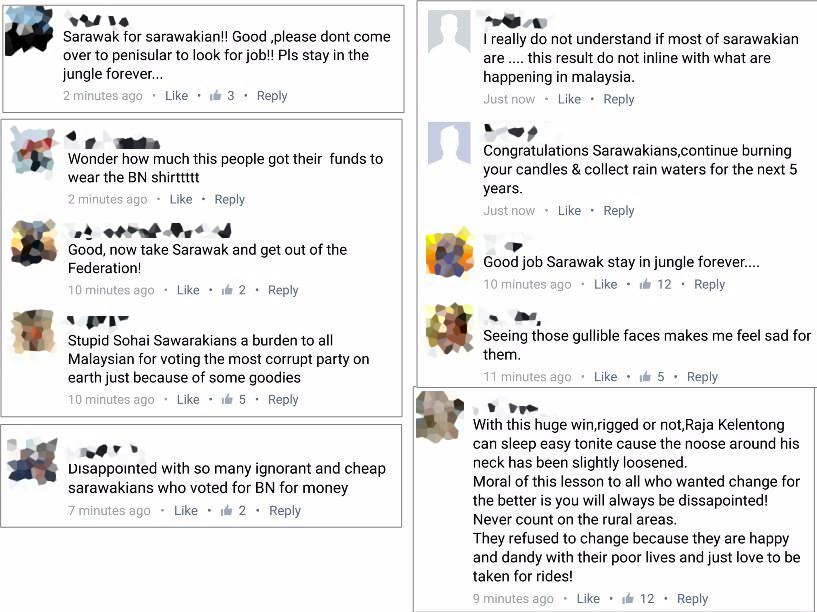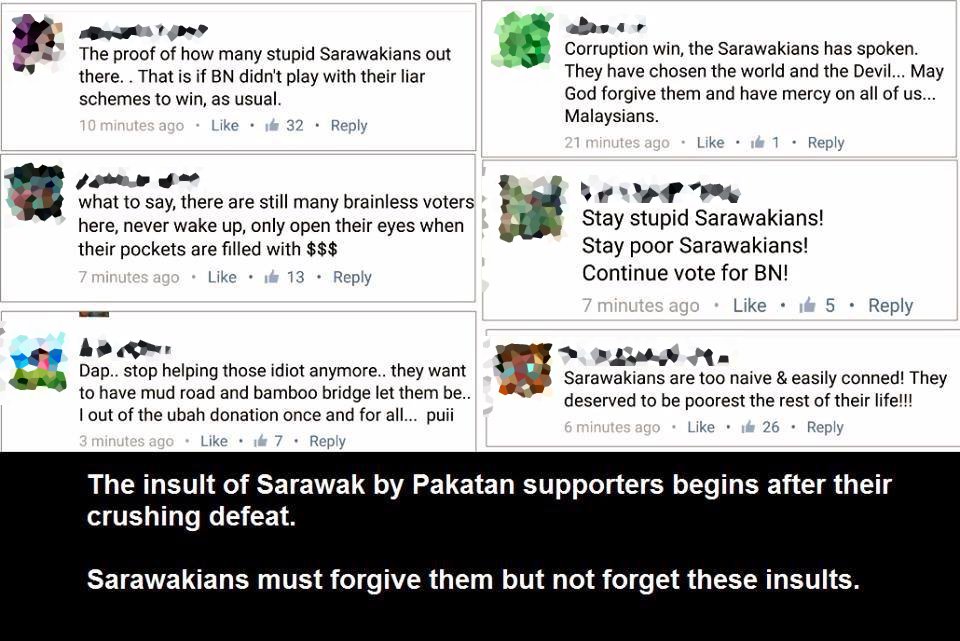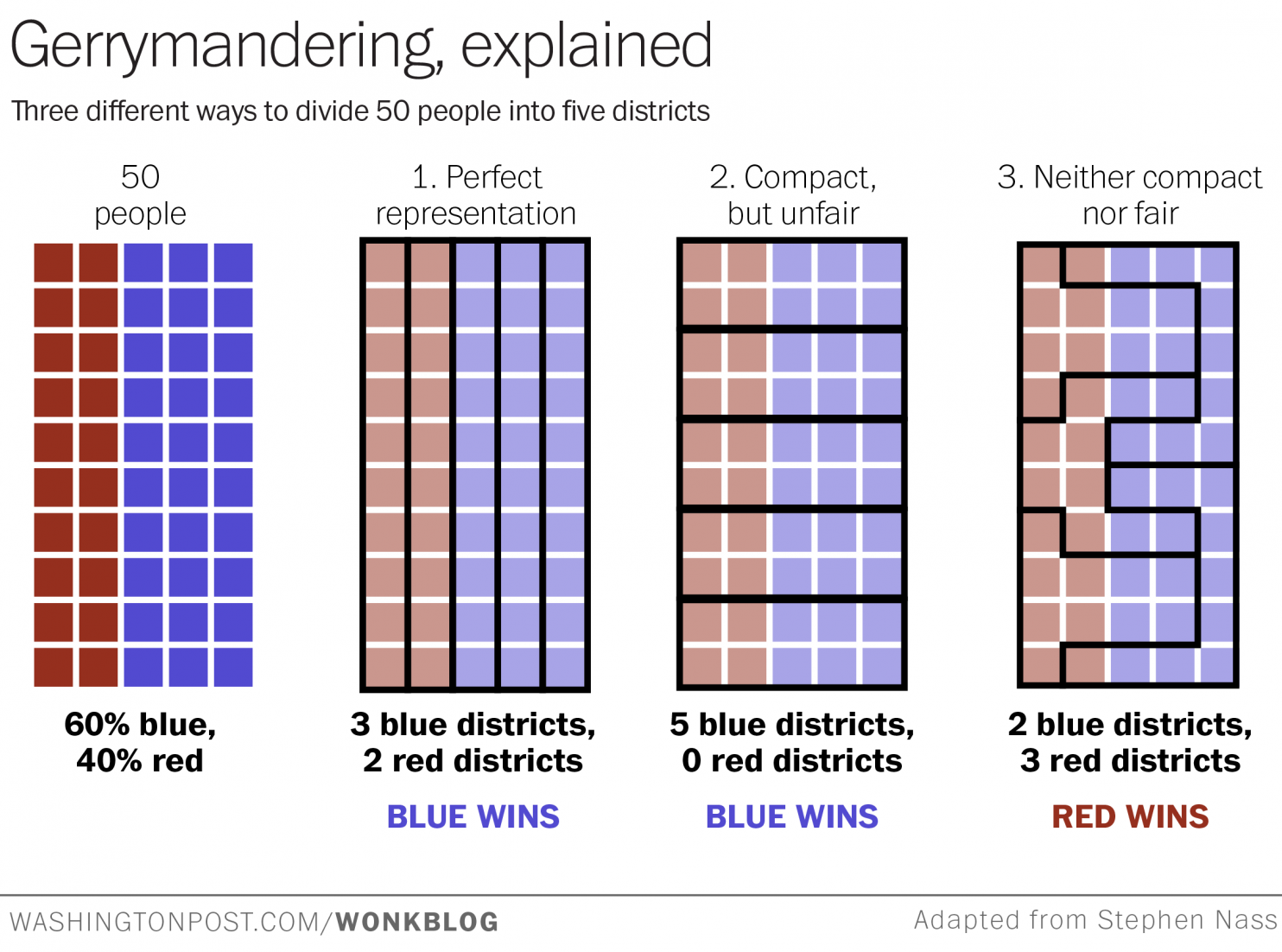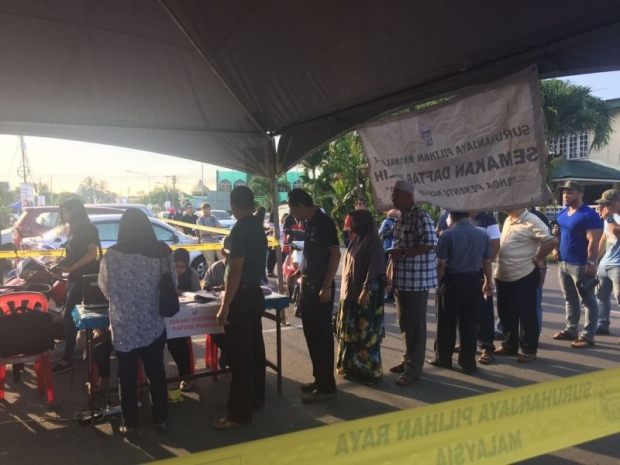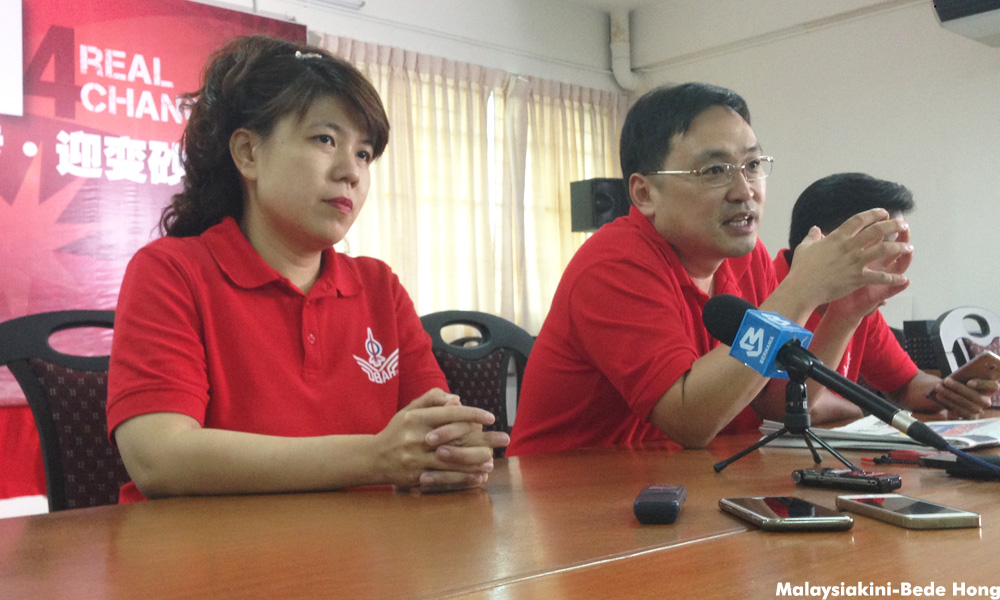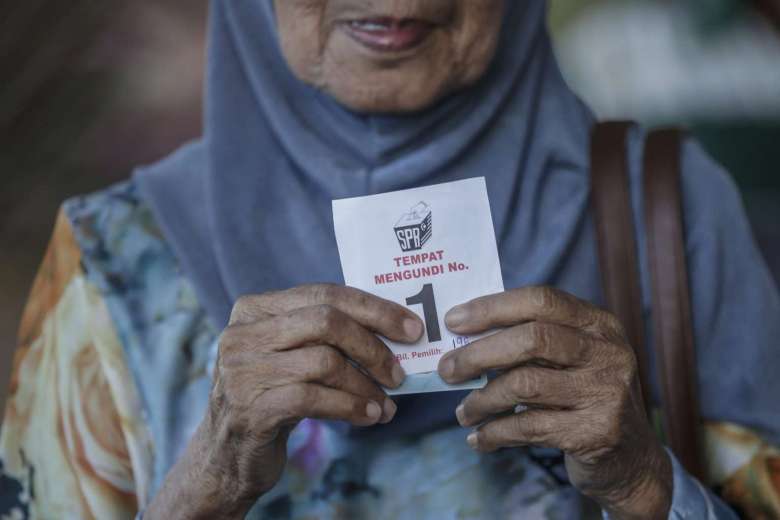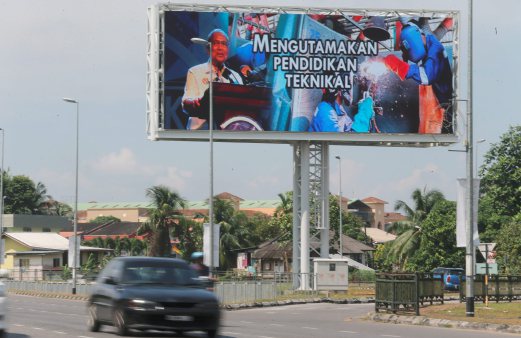8 Reasons Why The Opposition Lost The 2016 Sarawak Election
Despite the defeat, opposition leaders have stressed that they will continue working on improving the lives of Sarawakians.
While BN settles down for yet another term in "safe deposit" that is Sarawak, Malaysians are still battling with the thought that the ruling government has won the election so easily
A collection of screenshots filled with criticisms against Sarawak voters from the Facebook page of Raja Petra Kamarudin
Image via Facebook/ Raja Petra KamarudinComments have been pouring in all over the internet, with Malaysians reacting very strongly against the fact that Barisan Nasional won 72 out of the 82 seats in the state election.
The people's negative sentiments can be lead to the fact that the party has been embattled with one too many alleged financial scandals and high-level corruption cases that has managed to get the flak and attention of international justice systems like the FBI and the Swiss authorities.
A chunk of west Malaysians have even gone so far to chide and harshly criticise Sarawakians for their democratic rights of selecting their respective leaders.
Here's a look at some of the possible reasons on why the opposition parties lost in the recent Sarawak election:
1. Redelineation to electoral boundaries or gerrymandering by the Election Commission (EC)
Gerrymandering- the process of dividing a state into election districts to give one political party a majority in many districts
Image via The Washington PostDAP veteran leader Lim Kit Siang said that the changes, which he described as gerrymandering, favoured Barisan Nasional and had resulted in Sarawak DAP losing five of the 12 seats it previously held.
He pinpointed Alan Ling Sie Kiong, the Sarawak DAP secretary, as "the greatest victim of such BN-created constituencies" for his defeat in Piasau.
Ling, dubbed a giant-killer, had won the seat in 2011 by defeating George Chan, then SUPP president, with a majority of 1,590 votes. On Saturday, he was unseated by SUPP secretary Sebastian Ting who won a comfortable 2,112-vote majority, polling 7,799 votes against Ling’s 5,687.
Piasau was one of the seats involved in the Election Commission’s (EC) redelineation of state assembly seats last year, in which 12 new seats were created.
2. Low voter turnout- the EC reported that the overall voters turnout was at 52% by 4pm, just an hour before the polling ends
Voters lining up outside of SK Merpati Jepang voting center on Saturday, 7 May
Image via The Malay Mail Online/ Aizyl AzleeSarawak DAP chairman Chong Chieng Jen blamed the low voter turnout for the party’s loss of five out of 12 seats in the 11th Sarawak state elections today.
The predominantly Chinese opposition party only managed to defend seven of the dozen seats it previously won in the 2011 polls, amid a record low voter turnout of 52 per cent an hour before polls closed.
He said that even though the "Adenan factor" played a part in their defeat, it was not the main reason for the loss.
"The main reason is the low turnout rates," he said.
3. A streamlined focus on penetrating rural areas
DAP has been championing issues like native rights, basic necessities like running water, electricity and better roads for villages of late.
While their efforts have made some significant changes in some villages, having brought water and electricity facilities to some rural areas in Sarawak, it wasn't sufficient to win the elections.
However, the efforts didn't completely go to waste as in Tasik Biru, DAP's Bidayuh candidate Mordi Bimiol managed to get 5,634 votes against BN Dayak component, Sarawak Progressive Democratic Party's (SPDP) candidate, Henri Jinep that won with 6,922 votes.
Despite losing the Tasik Biru seat, Sarawak DAP chief Chong Chieng Jen said that they will continue to work with the rural community and bring development to the areas that need it the most.
Delving further into the opposition's defeat, an anonymous source spoke to SAYS about the things that may have contributed to the loss:
The source divided the reasons into two different parts; urban and rural seats, explaining that the situations were very different in both areas.
Urban seats:
4. The "Adenan" factor:
With autonomy and the promise to fight for the rights of Sarawakians, Adenan has managed to resonate with what they feel strongly about. BN's election campaign in Sarawak was highly focused on their promises to return native rights, increase oil royalty to 20%, and promote the idea of "Sarawak for Sarawakians".
After years of facing a huge divide in terms of development, the campaign was synonymous with what Sarawakians have been asking for and that reflected in the election results.
5. PKR-DAP clash:
While agreeing that PKR and DAP's inability to come a mutual agreement has in some ways affected the people's perception towards the stability of the opposition coalition, the source stressed that this only played a minor role in losing the seats.
Rural seats:
6. Money politics:
According to the source, towards the end of the campaign period at Tasik Biru, high-level politicians including Minister of Rural and Regional Development Ismail Sabri Yaakob, Pulai MP Nur Jazlan and even Prime Minister Datuk Seri Najib Razak turned up with cash handouts for the voters.
She explained that the there were instances when they said that they could not possibly vote for a different party after having taken the handouts from BN.
7. Fear mongering:
60 years down the road, most rural areas still have limited running water and electricity facilities. The source said that certain politicians have also allegedly threatened the locals, saying that they will no longer have water, electricity and welfare if they failed to vote for Barisan.
The people's lack of political awareness could have caused the people to believe that the government has the rights to revoke their basic rights, she said.
8. In addition to the above reasons, Adenan's move to ban key opposition leaders from Sarawak, may have contributed to the fact that their election campaign was not able to completely reach the masses there
The Sarawak government’s banning of opposition and civil society leaders ahead of the state elections violates Section 67 of the Immigration Act, electoral watchdog Bersih 2.0 said.
Ahead of the state elections expected to take place at the end of this month, more than 20 DAP politicians, several PKR and Amanah leaders have all been denied entry into the state.
Among those who have featured in the list of barred persons include DAP national publicity secretary Tony Pua, PKR secretary general Rafizi Ramli, and Amanah president Mohamad Sabu.
Activists, including Bersih 2.0 chairman Maria Chin Abdullah and former co-chairman Ambiga Sreenevasan are also on the list.
